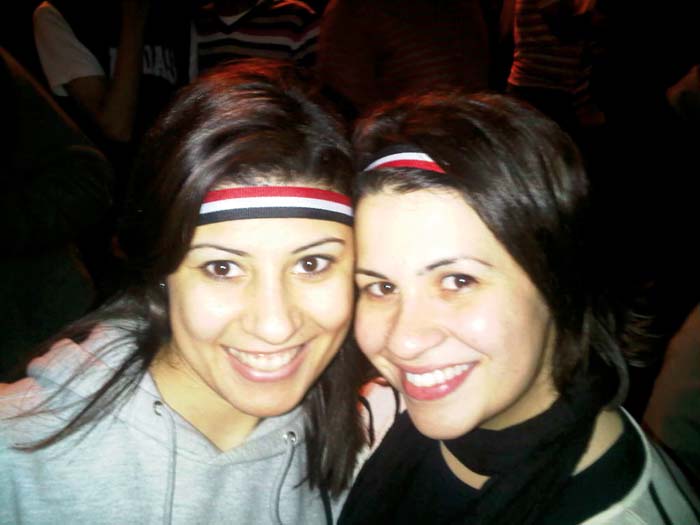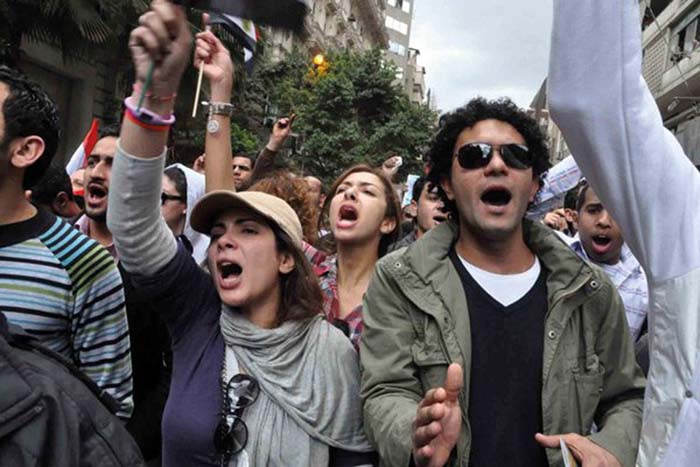| "This revolution started by
those who called for
change, freedom and
social justice 末 three keywords that
triggered a dormant Egyptian gene that
moved millions instantly all over Egypt
to join in one of the most incredible
revolutions of our modern time. It's an
outstanding historical experience that
we are all in awe of," said prominent
Egyptian actor Khaled Abol Naga '89.
Abol Naga is among many Egyptian
actors and actresses who took part in
the 2011 Egyptian Revolution, several
of whom are alums. These include Amr
Waked '96, Asser Yassin '04, Gihan
Fadel '93 and Angie Wegdan '04,
among others.
"I actually didn't expect much to
happen on the 25th," said Wegdan, "but
as events unfolded, I felt infuriated 末
youth dying, working class people
living under the poverty line asking for
their basic rights. I had to be part of
this call for change, so I went to Tahrir
on the 28th, as well as everyday during
the last week of protests, behind my
mother's back. The spirit was very
positive; people of all classes were there;
and I felt that I was really doing
something for my country."
For Yassin, the seeds of the revolution
began when he was a student at AUC.
"I always felt that we as youth were
lacking an Egyptian identity 末 no
sense of unity or identification," he said.
"At first, I went to check things out on
the 25th; I wasn't sure what to expect.
What I found, though, was an amazing
and peaceful spirit. It was something
very real and genuine, not moved by
anyone. On the 28th, I had no fear
inside me, seeing how we were all
standing together as one. One thing
that affected me the most was when
[72-year-old Egyptian actress] Mohsena
Tawfik came walking to Tahrir all the
way from Mohandiseen, stood firmly
against the tear gas and water cannons,
and held our hands hard so we would
not disperse. The strength and
determination I felt was incredible."
Looking ahead, Wegdan summed up
her vision for Egypt in educating
people about their rights; applying the
rule of law on everyone, from the
president to the layman on the street;
and investing in human capital.
"Egyptians are smart, but they're not
provided with the proper resources or
education to advance," she said. "We
have a long way ahead, but I'm sure
Egyptians will be strong in this world.
We'll retrieve our heritage."
Similarly, Abol Naga noted that in
order for the revolution to reap fruit,
all Egyptians must "stay honest and
true to the newfound spirit in Egypt,"
he said. "We have forever lost fear of
the unknown and cannot be
manipulated by fear or repression
anymore. We have regained our sense
of pride 末 the same we had in 1973.
I don't think I will ever be more
proud of anything else in my life 末
being one of the millions of fellow
Egyptians rising and standing up
against injustice, corruption and state
brutality. We all knew Egypt deserves
better, and so we revolted because we
wanted to be present, to be heard and
to be free."
By Dalia Al Nimr
|



